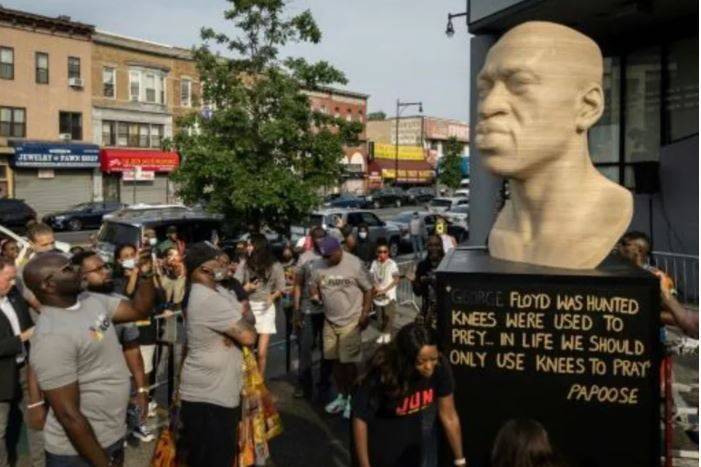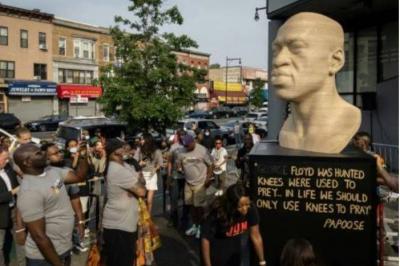Americans are celebrating Juneteenth on Saturday, the anniversary of the abolition of slavery in the country, with marches, speeches, music, and even barbecues, following its designation as a federal holiday after the year since George Floyd's death. Floyd's murder sparked a protest movement in the U.S. and abroad against racism and police violence toward Black individuals. This mobilization significantly highlighted Juneteenth, a date many Americans, including Black Americans, were unaware of just two years ago.
The current name comes from a combination of "June" and "Nineteenth," coinciding with the day the last slaves in Texas were freed on June 19, 1865. Slavery was officially abolished in December 1865 with the adoption of the Thirteenth Amendment to the Constitution, but Juneteenth, which began to be celebrated in Texas a year later, became the significant anniversary of the liberation of African Americans. The celebration of Juneteenth began in 1866, and its significance has been enhanced this year as it marks the first national holiday celebrated without health restrictions, most of which have been lifted in recent weeks.
Hundreds of events are scheduled across the United States, from New York to Los Angeles, including Galveston Island in Texas, which is considered the symbolic birthplace of Juneteenth. President Joe Biden signed a law on Thursday designating June 19 as a national holiday after 156 years.
"It took a long time," says 68-year-old Sheryl Green, who attended the unveiling of a bust of George Floyd, killed by a white police officer in Minneapolis in May 2020. The Black woman adds, "It's good for people to recognize what happened," and continues, "Change is happening slowly, but it will definitely happen." A survey published on Tuesday by the Gallup Institute showed that 28 percent of Americans "know nothing" about the holiday.
New York's Black city councilor Farah Louis said at the unveiling of the Floyd statue, "I didn't learn about Juneteenth until high school." She believes the holiday should focus on "educating youth" about Black history and their status in the U.S.
Pennsylvania State Senator Sharif Street stated on Twitter that "it's surreal to celebrate (this day) while we struggle against attacks we face around the country." Between January and May, 14 U.S. states, notably Georgia and Florida, voted for laws limiting voting options in elections, deemed to target minority voting, particularly that of Black Americans. Street considers this a "reminder that our victories are not decisive, even regarding strong symbols of progress" such as voting rights.
Currently, there is a bill in the Senate aimed at ensuring broader access to voting, but its future appears uncertain due to opposition from many Republican members. Meanwhile, Farah Louis sees the declaration of Juneteenth as a holiday and the momentum generated by George Floyd's death as an "opportunity" for Black Americans. She stated, "We must strike while the iron is hot,” specifically referring to discussions on enacting “reparations” for Black Americans in light of the atrocities of slavery.
On Friday, mayors of 11 U.S. cities, including Los Angeles and Denver, pledged to allocate reparations to representatives of Black communities and urged the federal government to follow their lead. During the unveiling of the George Floyd statue, his brother, Terrence, remarked, "We see change" in the country. Terrence Floyd, who resides in New York, recently established an organization called "We Are Floyd" to ensure "the change continues," as he told AFP.




